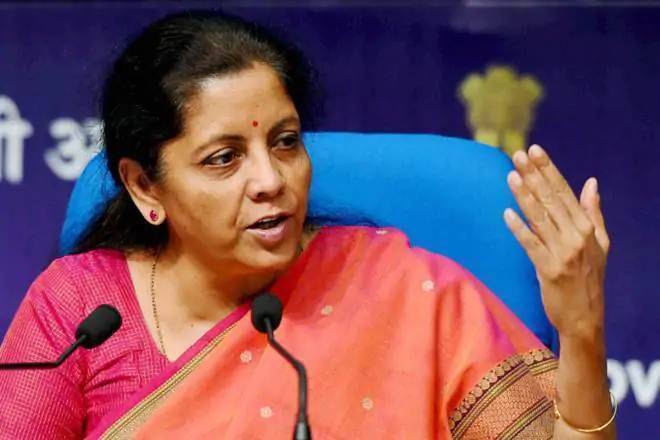India’s Finance Minister Hints at a Calibrated Approach Toward Cryptocurrencies
India’s Finance Minister Nirmala Sitharaman has suggested that the Indian government may not go ahead with a blanket ban on cryptocurrencies, providing a glimmer of hope for the crypto community in the country. In recent remarks, Sitharaman emphasized that the government is still in the process of forming its stance on digital currencies and will adopt a “very calibrated approach” toward regulating them. This statement comes amidst ongoing deliberations regarding the Cryptocurrency and Regulation of Official Digital Currency Bill 2021, which intends to ban all private cryptocurrencies, while creating a regulatory framework for the Reserve Bank of India’s (RBI) digital rupee.
Despite the uncertainty, the Finance Minister’s comments suggest that the government may allow specific exemptions to support the underlying technology of cryptocurrencies and its various applications. Sitharaman highlighted that consultations with the RBI were ongoing, suggesting that the government was taking a considered approach to the matter, balancing potential risks with the need for innovation in the sector.
The Divergence Between the Government and RBI on Cryptocurrencies
Sitharaman’s statements on the government’s evolving view on cryptocurrencies contrast with those of RBI Governor Shaktikanta Das. While the Finance Minister indicated that the government might experiment with cryptocurrencies, Das has expressed concerns about the potential impact of digital currencies on India’s financial stability. The RBI has raised issues regarding the risks posed by cryptocurrencies, particularly the lack of regulatory oversight, and its potential to undermine the traditional banking system.
However, Das has also noted that the RBI is not opposed to blockchain technology itself. The central bank is actively working on a digital version of the Indian rupee, a Central Bank Digital Currency (CBDC), which it sees as a way to harness the benefits of blockchain technology while maintaining control over the monetary system.
The Ongoing Debate: Cryptocurrency Ban vs. Regulatory Framework
The Indian government’s current stance on cryptocurrencies remains uncertain, with some reports suggesting that the government may still be leaning toward banning private cryptocurrencies. However, the government also appears open to developing a regulatory framework for cryptocurrencies, especially with regard to the technology behind them and their potential applications. The bill being discussed in Parliament aims to provide a regulatory structure for the issuance of a digital rupee while imposing restrictions on private cryptocurrencies.
Sitharaman’s remarks indicate that India’s policymakers are still in the process of evaluating the broader impact of cryptocurrencies on the economy and the financial system. As the government continues its consultations, it seems that a more balanced approach may be on the horizon, one that incorporates both regulation and innovation.
India’s Growing Crypto Ecosystem and the #IndiaWantsBitcoin Campaign
Despite the uncertainty surrounding regulatory actions, India’s crypto ecosystem continues to grow. Last month, India’s leading cryptocurrency companies launched the #IndiaWantsBitcoin campaign to highlight the importance of the crypto space in the country’s financial future. The campaign aims to showcase the potential of cryptocurrencies and their positive impact on millions of Indian investors.
In a move that reflects the growing acceptance of digital currencies, Unicas, a global crypto-financial ecosystem, recently opened its third physical branch in New Delhi. This expansion follows the launch of its previous branches in Jamnagar and Jaipur. Unicas offers a wide range of services, including access to both fiat and crypto, and digital loans that use crypto holdings as collateral. The company has ambitious plans to expand further, with plans to open 50 more branches by the end of 2021 and an additional 50 by 2022. However, the future of these plans remains uncertain as the crypto bill is still pending in Parliament.
Conclusion: India’s Crypto Landscape Faces Uncertainty, But Innovation Continues
As India continues to navigate the complexities of cryptocurrency regulation, the government’s decision remains up in the air. While the bill proposing a cryptocurrency ban could still become law, the recent comments by Finance Minister Nirmala Sitharaman suggest that there may be room for innovation and experimentation within the space. The country’s growing crypto ecosystem, along with initiatives like the #IndiaWantsBitcoin campaign, illustrates the increasing interest in digital assets despite the regulatory uncertainty.
As India’s stance on cryptocurrency develops, the focus on striking a balance between regulation and innovation will be crucial. The future of India’s crypto market, and its ability to foster growth and investment, will depend on how the government decides to approach this evolving technology in the coming months.
To learn more about the innovative startups shaping the future of the crypto industry, explore our article on the latest news, where we delve into the most promising ventures and their potential to disrupt traditional industries.
Disclaimer: The information provided is not trading advice, Bitcoinworld.co.in holds no liability for any investments made based on the information provided on this page. We strongly recommend independent research and/or consultation with a qualified professional before making any investment decisions.




